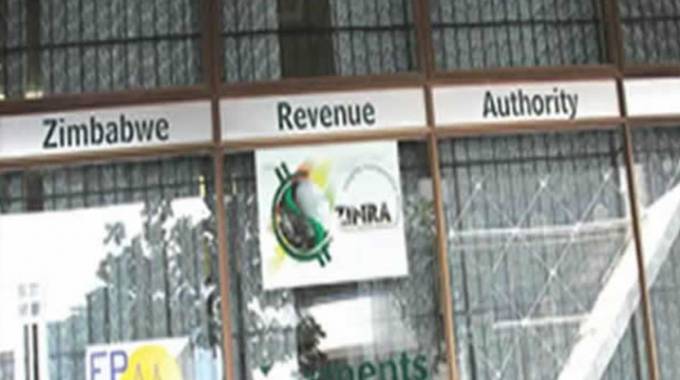
The Sunday Mail

Taurai Changwa
THE Zimbabwe Revenue Authority’s resolve to fight corruption is never in doubt as it continues to double down on efforts to rid the organisation of rotten apples.Corruption is evidently deep-seated in many, if not most, public entities. An oversight role by authorities is clearly needed.
But, as the saying goes, power is nothing without control: power has to be exercised responsibly.
Zimra’s often heavy-handed approach sometimes scares industry players to the extent that it stifles progress.
This is also made all the more difficult by the straitjacket approach by most of the authority’s officials, most of whom cannot even use their discretion to serve clients.
Many companies are undeniably heavily indebted to Zimra, but their issues need to be dealt with on a case-by-case basis, and this can obviously be to the discretion of officials.
In circumstances where Zimra officers are not empowered to make independent decisions, which is understandable considering the window that this opens to corruption, it is ordinary, desperate companies that are bound to suffer.
This is especially true for distressed companies that fail to meet their obligations to Zimra due to factors that are beyond their control, but critically need the tax clearance certificate in order to continue operating.
While a valid reason can be presented to Zimra on why the company is the position that it finds itself, it can take inordinately long in some cases for the matter to be favourably settled.
Although there is a law that allows companies to withhold 10 percent (withholding tax) for companies that do not have a valid tax clearance certificate, it is noteworthy that this is not applicable when one intends to participate in public tenders.
Failure to produce a valid tax clearance certificate to the State Procurement Board often results in automatic disqualification.
Zimra also allows a payment plan as a back-up to issue the tax clearance certificate, but at times the circumstances may not even allow for this to happen.
For instance, imagine a company owes Zimra US$10 million but is currently only generating US$50 000 per month.
A huge chunk of the obligations owed to the statutory body might be as a result of defaulting customers, including penalties and interests also imposed by Zimra.
Depending on the circumstances, some companies might need a reprieve in order to sort out their mess and put the business back on track, and this is the time when Zimra needs to be responsive and supportive the most.
They are also other legal grey areas that might make it difficult for companies.
For example, it might be difficult to determine whether one needs to pay Value Added Tax on a discount or a token of appreciation?
In most cases, of your supplier rewards you with US$100 as a token of appreciation for doing business together, Zimra expects US$40 on this amount, 25 percent income tax and 15 percent VAT.
Well, while income tax should be paid, VAT on such transactions is questionable. This is unfair as it adds to the tax burden.
What is disconcerting is the fac t that in some cases there is a disconnect between the information that is provided on the Zimra’s website and what some officials tell clients.
It is quite an onerous burden that Zimra cases, particularly at times like these when the economy is hugely challenged.
The authority must, however, be fair, and its website has to be unambiguous.
On the other hand, tax should not be painful to pay and clients should simply pay what they rightfully owe.
As Zimra clamps down on corrupt staff, some of its officers must not be overly cautious.
They should remain as professional before and discharge their duties in the best way they know how.
Fear often clouds professional judgment.
Staffers at times should not fear defending clients in circumstances where the law favours them.
It needs to be re-emphasised that professional judgment is needed at times and failure to do this can even result in company closures.
Again, there is need for Zimra to evaluate matters on a case-by-case basis.
We need our taxes in order to run our country and at the same time we need our companies to provide employment and also continue to contribute to the fiscus.
In short, trying to hold on to your job can make you do some shortsighted things. Corruption should stop in Zimbabwe, however, let not fear cloud good judgment as this is affecting clients.
Taurai Changwa is a member of the Institute of Chartered Accountants of Zimbabwe and an estate administrator with vast experience in tax, accounting, audit and corporate governance issues. He is a Director of Umar & Tach Advisory and writes in his personal capacity. Feedback: [email protected] and WhatsApp +263772374784



